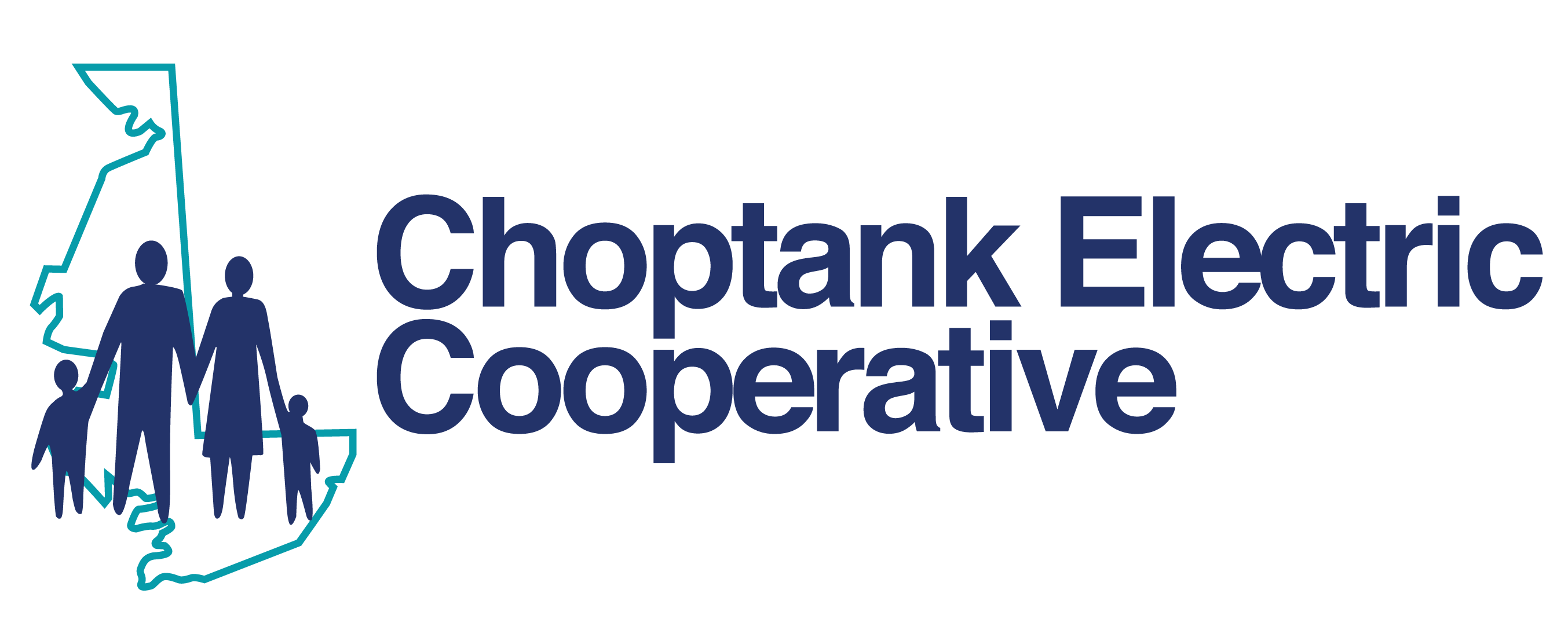Rights-of-ways are essential to how utilities across the country provide and maintain reliable, affordable, and safe electricity for our consumers. With that in mind, Choptank Electric Cooperative also looks for additional ways to be forward-thinking and ensure efficiency and sustainability not only for providing power, but also for our environment here on the Eastern Shore.
In 2018, Choptank Electric Cooperative partnered with Washington College and Chino Farms to study our right-of-way efforts and see which way was more effective: select herbicides and traditional mowing, or alternatively using goats as a more natural and environmentally friendly way of keeping vegetation in our rights-of-way contained.
The results of splitting a right-of-way into sections and studying the effects were eye opening. It was found that goats grazing were ineffective in keeping the rights-of-way clear and they also damaged once thriving vegetation that helped pollinators. Additionally, the goats did not eat the invasive species that needed to be removed. From the detailed study, it stated, “The field goat browsing study showed that browsing goats are ineffective at controlling 3-year-old woody species. Their feeding preferences also reduced the site’s pollinator benefits and native herbs that corresponded to an increase in invasive plants, woody trees, and shrubs.”
“It was a great study to conduct for our area,” said Bryan Hall, Vegetation Management Coordinator for Choptank Electric Cooperative. “And while it didn’t work out like many had hoped, participating in these types of studies is the only way we can continue to stay effective for our members and the environment.”
“At Choptank Electric Cooperative, we employ the best vegetation management practices so that our members receive the most reliable, safe, and affordable electricity on the Eastern Shore,” Hall continued. “Using proven traditional vegetation management activities such as tree trimming, tree removal, mowing, and herbicide application to clear non-compatible vegetation from within and around the varying utility resources is our best bet for providing that service for our members.”
To learn more about this study, or if you have questions about our vegetation management program, or have a specific question regarding trees and how they impact electrical service, please visit www.choptankelectric.coop or contact Bryan Hall at 410 479-8557.
*Excerpts and study originally written by Richard A. Johnstone, President, IVM Partners, Inc.; Michael R. Haggie, Botanist, Haggie IVM; and Bryan Hall, Forester, Choptank Electric Cooperative; published in Utility Arborist Newsline, March-April 2022.
